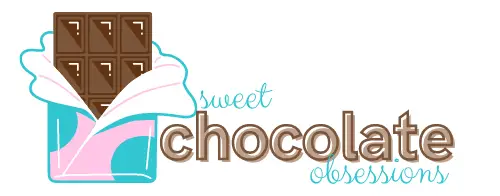The Role of Chocolate in Traditional Festive Celebrations Around the World
As we get ready for the holidays, I want to take a minute to talk about chocolate. A lot of people think that chocolate is a Western thing—the kind of sweet that comes in little bars wrapped in gold foil and goes with wine. That’s not quite right! Sure, cocoa was first cultivated by the Olmecs around 1,500 BC in what is now Southern Mexico, but it’s been consumed all over the world for thousands of years. In fact, the Mayans were making hot chocolate drinks long before Europeans even knew about it!
Japan
Japan has a long history of using chocolate in its culture. The Japanese have been using it since the 16th century, although the first record of chocolate was only found in the 17th century. Chocolate is still widely used to this day and especially at festivals.
In Japan, people use chocolate as an ingredient for sweets such as cakes and cookies during special occasions. They also make various types of desserts with it like mocha ice cream and hot cocoa mix that are served during autumn festivals or winter festivities such as Christmas time!
There are many other cultures that use chocolate in their traditional celebrations too!
Mexico and Central America
In Mexico and Central America, chocolate is a traditional gift to give on the Day of the Dead. It’s also used in hot chocolate, mole sauces and other traditional foods. Chocolate-covered fruits such as strawberries are popular at this time of year.
Europe
Christmas is the most widely celebrated holiday in Europe. It’s celebrated with a day off from work, feasting, and gift-giving.
Valentine’s Day is also widely celebrated in Europe. Married couples exchange cards and gifts to celebrate their love for one another while single people are tasked with finding ways to spend their time on Valentine’s Day that don’t involve being alone.
Easter is a Christian holiday where many people egg each other (or receive eggs). It is also referred to as Pascha and Resurrection Sunday after Easter Sunday which falls between March 22nd and April 25th every year.
Hanukkah celebrates the rededication of the Second Temple in Jerusalem after its desecration by Antiochus IV Epiphanes, a Seleucid king who sought out to eradicate Judaism from Israel during his reign from 175 BC until 164 BC (1 Maccabees 1:10-64). On December 16th or 17th each year depending on whether or not you’re using Julian or Gregorian calendars respectively; Jews around the world light candles inside their homes for eight days straight beginning on December 20th through January 1st (Hanukkah Eve) traditionally known as Festival of Lights because we can’t be bothered by traditional names like “Christmas Eve”.
West Africa
Chocolate has a special place in West African culture. It is used in religious ceremonies, as a currency and to mark special occasions. The Yoruba people of Nigeria use it for medicinal purposes, as do the Yucatec Maya of Mexico and Guatemala.
In some parts of West Africa, chocolate is used during rites of passage like weddings and funerals; it’s also served at celebrations such as Eid al-Fitr or Eid al-Adha (the end of Ramadan). In these cultures, there are different types of chocolate depending on how they’re prepared—crushed cocoa beans can be mixed with water or milk to make milk chocolates while ground cocoa powder may be added to hot water (like coffee) for hot chocolate drinks.
Western North America
The use of chocolate in traditional Western North American winter celebrations is a big deal. In fact, it’s such a big deal that candy makers have created special treats for the season. These include everything from crunchy caramels to chewy marshmallows to fudgy brownies—all packed with the sweet stuff!
But that’s not all: Chocolate is also used in many other desserts and drinks, such as ice cream sundaes and hot cocoa (which can be made with milk or water). And if you’re wondering what kind of cakes are made with chocolate? Well they range from brownie-based goodies like s’mores cake to more elaborate creations involving multiple layers of icing!
Chocolate is important to many cultures
It’s no secret that chocolate is an important part of many cultures. While it may not be the only thing that people associate with holidays and celebration, it can still serve as a symbol for many different things. Chocolate has played a role in celebrations for centuries and has become so intertwined with the idea of celebrating that it’s hard to imagine eating chocolate without thinking about something special. Here are some examples:
Conclusion
We hope you’ve enjoyed learning about the role of chocolate in various cultures around the world. We have just scratched the surface here, and there are many more countries to explore! Please feel free to reach out if you have any questions or comments about your own favorite ways to enjoy this sweet treat.
